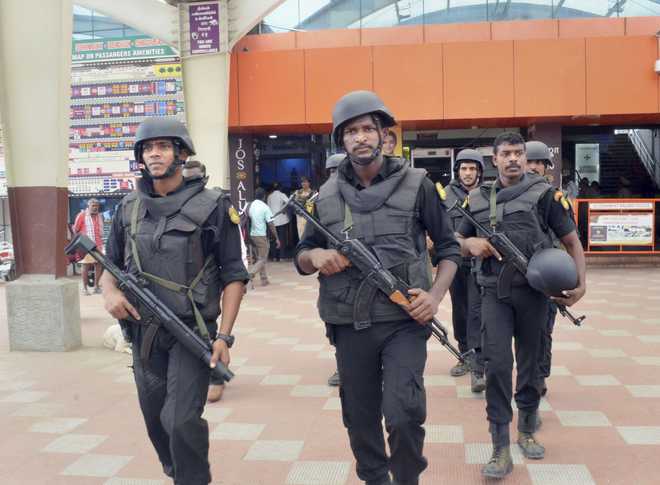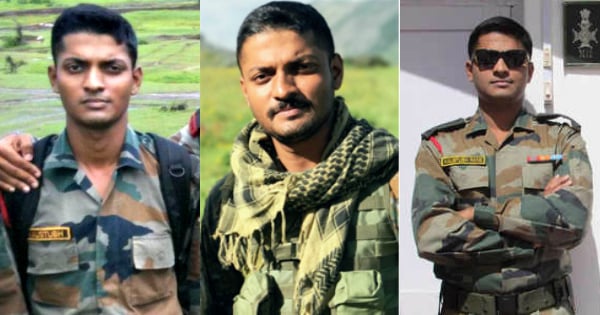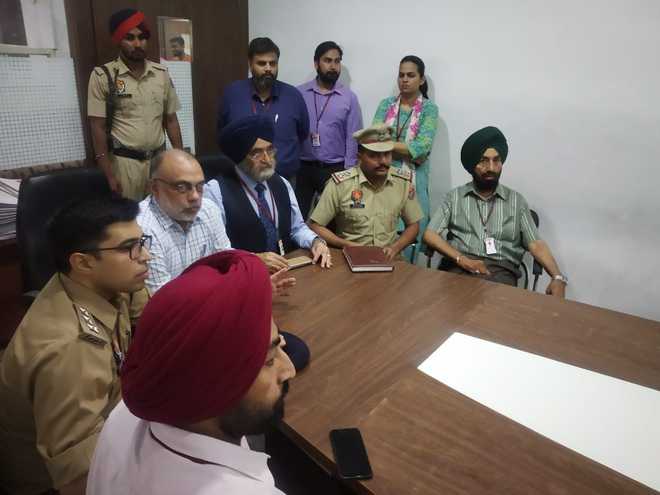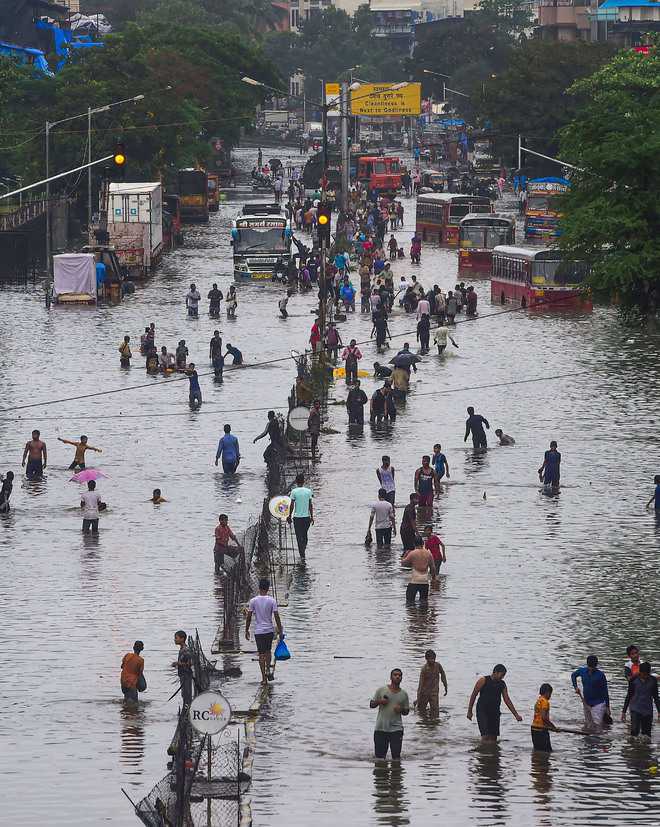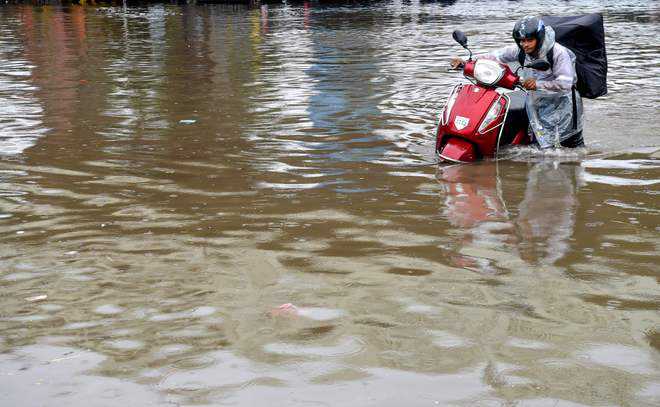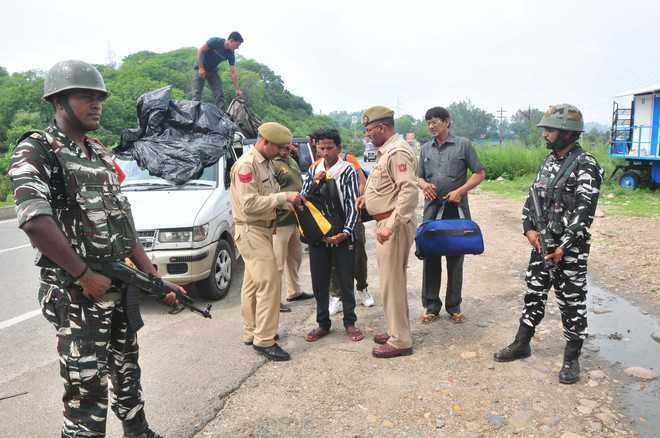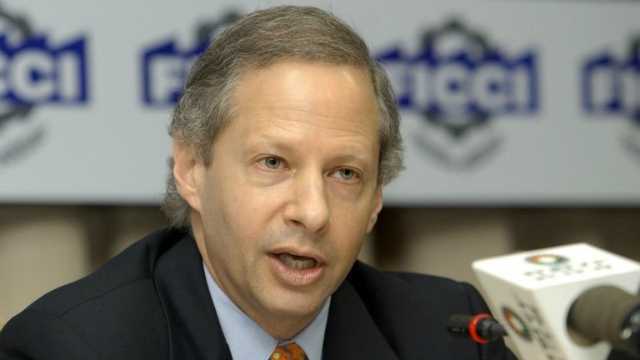The political movement headed by Sheikh Abdullah that originated in Kashmir in 1931 (as part of a British conspiracy against the Maharaja) remained to some extent unsuccessful to gain the support of Jammu especially the Hindu dominated areas. Its genesis, growth and ideological moorings made it a suspect in the eyes of the Dogra Nationalists of Jammu who looked upon it as something alien and unacceptable. Pt Prem Nath Dogra led the All Jammu & Kashmir Rajya Hindu Sabha as the main opposition party. It merged with Praja Parishad which was formed in Jammu immediately after the tribal invasion in November 1947. The genesis of the history of struggle for total integration of the state with India began with the birth of All Jammu & Kashmir Praja Parishad popularly known as Praja Parishad. The existence of Praja Parishad as a protest movement opposed the Sheikh’s major policy planks such as abolition of land-lords, anti-Dogra drive, attempts at framing a separate constitution for the Jammu and Kashmir state and a separate flag, emblem etc.
Sheikh Abdullah became the Prime Minister of J&K in March 1948. He abhorred opposition. He wanted to become de facto ruler of J&K and replace monarchy with a dynastic rule. He was an advocate of “One Party State”. He forced Nehru to introduce Article 370 in the Constitution of India to ensure Kashmiri Muslim Domination over Jammu & Ladakh. He was successful in his endeavour and went ahead with his plan of annihilation of the opposition. His cronies chanted slogans like, ‘ek Rehnama, Sheikh Mohammad Abdullah, ek Tanzeem National Conference, ek Jhanda, Halwala, ek Manshoor (manifesto) Naya Kashmir’ which created an intriguing situation in Jammu and Kashmir ringing the bells of imminent danger among the pro-integration Dogras of Jammu.
Visionary Pt. Prem Nath Dogra and his colleagues felt this rat-race was dangerous for the growth of democracy as this sentiment of “ek” would lead Sheikh Abdullah to fulfil his ambition of a “Single Party State” leading to totalitarianism. For democracy to prosper in the state and for establishment of true Lok Raj, existence of a strong opposition party was essential. Praja Parishad was expected to foot the bill. Moreover, the policies of Sheikh Abdullah were exclusive confined to the welfare of Kashmiri Muslims and ignored the sentiments and interests of the people of Jammu and Ladakh region. He could not think beyond Kashmiri speaking Muslims of the Valley. His animosity with the Maharaja transformed into hatred for the Dogras of Jammu which was unjust and unfair. Unfortunately, he enjoyed the backing of the ruling party in the Centre and the then Prime Minister Jawaharlal Nehru.
Though Jammu and Kashmir comprised of three distinct culturally and geographically exclusive regions namely Kashmir, Jammu and Ladakh yet the central leadership did not look beyond Kashmir and Sheikh Abdullah. The Kashmir centric inclination of the central government was a major cause of concern for the people of Jammu. The main task to which Praja Parishad was committed was the full integration of Jammu and Kashmir State with the Indian union, like other acceding states and safeguard the legitimate democratic rights of the people of Jammu from the anti-Dogra stance of Sheikh Abdullah government.
Sheikh’s continued discriminatory policies helped in Praja Parishad becoming popular in Jammu region among all sections including the Muslims. This growing popularity of Praja Parishad created panic in the Abdullah camp and he resorted to strong arm tactics to supress the growth of Praja Parishad since it posed a strong challenge to his political ambitions. Several activists were expelled from the State including the author’s grandfather Advocate Bishan Das Mahajan of RS Pura along with his family.
The leaders of Praja Parishad , considered a threat by Sheikh Abdullah, were put behind the bar in February 1949. Section 3 of Ranbir Penal Code (RPC), which is known as ‘Daffa Tun’ i.e. put in lockup without any trial, was slapped on Pt. Dogra and his colleagues. They were shifted to Srinagar jail to face severe winter cold. The extent of the NC rulers pique towards Praja Parishad could be gauged from the fact that on the jail’s account board the activists were listed as “Enemy Agent”.
By mid – 1949 Sheikh imprisoned as many as 294 Parishad workers. In May 1949, Praja Parishad started ‘Satyagrah’ for ensuring the release of Pt. Dogra. Though Abdullah wanted to crush this movement but he could not do so and finally he yielded to the pressure of the ‘Sataygrah’ and was forced to release Pt. Dogra from Jail on 8th October 1949 with the intervention of some nationalist leaders in Delhi. The atrocities of Sheikh on ‘Satyagrahis’ were such that incapacitated many of them including Pt. Dogra.
But this was not an end of the persecution and high handedness of Abdullah government. His hatred against the nationalists was aggravated by the fact that Parishad’s demand for full integration clashed directly with the demand of National Conference for complete autonomy of the state. As many as 15 youths were shot dead and some others injured at various places for hoisting the Indian Tricolour. The agitation launched by Parishad also included the demand for abolishing of permit system for entering or leaving the state.
Many may argue the timing of this article and need for it being written now under the changed circumstances. A reference to the beautifully worded poem of the famous poet Henry Wadsworth Longfellow will not be out of place. “Heights by great men reached and kept were not attained by sudden flight but they, while their companions slept, were toiling upward in the night.” Now that the full integration has been achieved and Art 370 has lost its relevance, it is imperative for the present generation to know many sacrifices made and struggles launched by their predecessors which acted as the enabler of present landmark achievement.
The party tirelessly tried to unite the people of Jammu with a view to foil the attempts of those who either favoured autonomy or tried to separate the state from Indian Union. By 1951 the Party had become a power to reckon in the areas of Jammu and the only one which was in any real sense the opposition party. Praja Parishad always opposed the setting up of a separate Constituent Assembly for the state. It favoured the application of Indian Constitution.
Despite being opposed to a separate constitution for the state, a special session of the party held on May 8, 1951, decided to contest the elections to the constituent Assembly of the State. Because of the large scale rejection of nomination papers of its candidates and nefarious manipulation of the elections by Sheikh Abdullah, party decided to boycott the elections in protest. The party in spite of its strong support base did not have a single member in the constituent assembly which under Sheikh’s leadership went ahead with framing a constitution that promoted the concept of ‘State within a State.’
National Conference (NC) and its leader Sheikh did everything to ensure that all the members of NC would be there in Jammu and Kashmir Constituent Assembly. Sheikh dubbed the members of Praja Parishad as communal ignoring the fact that many Muslims were also contesting on the ticket of Praja Parishad. Praja Parishad turned into a mass movement and it played a key role in opposing separatist and communal politics in Jammu and Kashmir. Parishad always favoured the complete and total integration of Jammu and Kashmir with India and was opposed to Article 370.
Emboldened by the support he enjoyed from Nehru and after signing of Delhi Agreement, Sheikh started hoisting the National Conference flag in official functions and atop government buildings. However, in keeping with his habit of double-speak he implemented the Agreement only in part to further his agenda of autonomy. On January 15, 1952, Sheikh delivered a speech in an official function at Gandhi Memorial College, Jammu and hoisted National Conference Flag alongside the National Flag asking the students to salute it but the students objected to it. This infuriated Abdullah and he ensured that the students were penalized. This was followed by 38 days of hunger strike by students in 1952. On February 8, 1952 people in Jammu came out in solidarity with the protesting students that further infuriated Sheikh and he imposed curfew and arrested Pt. Dogra. This was followed by intense public pressure that forced Delhi to act and ensure the release of Pt. Dogra and others.
It soon turned into a public movement against the despotic rule of Sheikh and his anti-national activities. The movement found support nationally in form of Bhartiya Jan Sangh which was formed in 1951.
Another mass movement was launched by Parishad in November 1952 against the separatist and communal politics of Abdullah. Jan Sangh President Dr Syama Prasad Mookerjee announced in December 1952 to launch a nation-wide agitation for the abolition of Article 370. On May 8, 1953 he decided to enter J&K violating the prevalent permit system and was arrested by Sheikh as soon as he set foot on the soil of the state. Mookerjee intended to lead the ongoing full-blown public agitation in Jammu. The agitation had a powerful slogan: Ek Desh mein Do Vidhan, Ek Desh mein Do Nishaan, Ek Desh mein Do Pradhan, nahin challenegey, nahin challengey. He was jailed and tortured at Srinagar under the despotic rule of Sheikh which led to his mysterious death on 23 June 1953. An estimated 10,000 activists were imprisoned in Jammu, Punjab and Delhi, including Members of Parliament leading to an uproar in India.
Blinded by his ambition, Sheikh indulged in competitive communalism and worked towards establishment of independent Muslim majority state claiming that India was not secular enough. Parishad opposed it tooth and nail and accused that Sheikh was not Indian enough. Sheikh was finally arrested in August 1953 after he made secessionist speeches at RS Pura on April 10 and on 13 July stating in public, “Kashmir should have sympathy of both India and Pakistan…It is not necessary for our state to become an appendage of either India or Pakistan.”
Bakshi Ghulam Mohammad, who succeeded Sheikh implemented all the provisions of Delhi Agreement thus facilitating greater integration with the Centre. Praja Parishad movement largely subsided after these events. Parishad finally merged with Jan Sangh in 1963 and two years later National Conference merged with Congress.
Ever since then Jan Sangh and later Bharatiya Janata Party has been struggling and agitating for ending the special status of the state which not only promoted separatism, religious militancy and was the major cause of rampant corruption and under development of the state. Re-entry of Sheikh Abdullah in state politics in 1975 under an agreement with then Prime Minister Indira Gandhi and subsequent Rajiv-Farooq accord and Rahul-Omar bonhomie gave a new fillip to the demand for greater autonomy and saw rise of jihadi and radical forces in Kashmir.
The historic decision of August 5, 2019 is the result of the struggle and sacrifices of three generations of Praja Parishad, Jan Sangh & BJP workers. BJP as successor of Jan Sangh remained focussed and committed to abolition of Article 370 and full integration of the state with India. Many accused BJP of using it only as an election plank to woo voters in the Hindi heartland but all of them have been proved wrong.
J&K unit of BJP recently held a function to honour the activists and family members of those who were associated with the Praja Parishad agitation. A noble gesture to recognise the sacrifices and contributions of those great men whose dream of full integration of the State has at last been achieved.
My effort at recollecting history will be incomplete without acknowledging the hard work and dedicated effort of Kul Bhushan Mahotra, incharge Library Department of state BJP who has compiled three books which will prove as a treasure for those who want to study in detail the genesis of the Praja Parishad movement and abolition of Article 370.
(The author is a Jammu based political commentator and columnist. The article is based on personal accounts and available literature. He can be contacted at anil5457@gmail)
Brig Veteran Anil Gupta
Hits: 13












